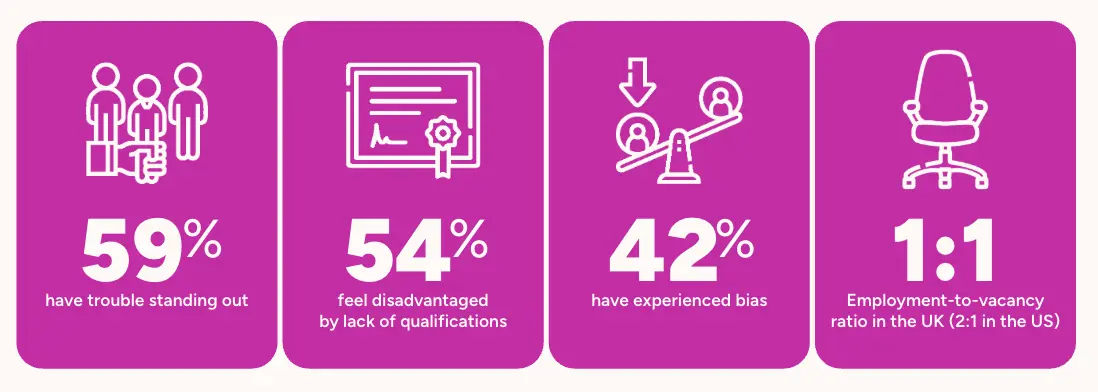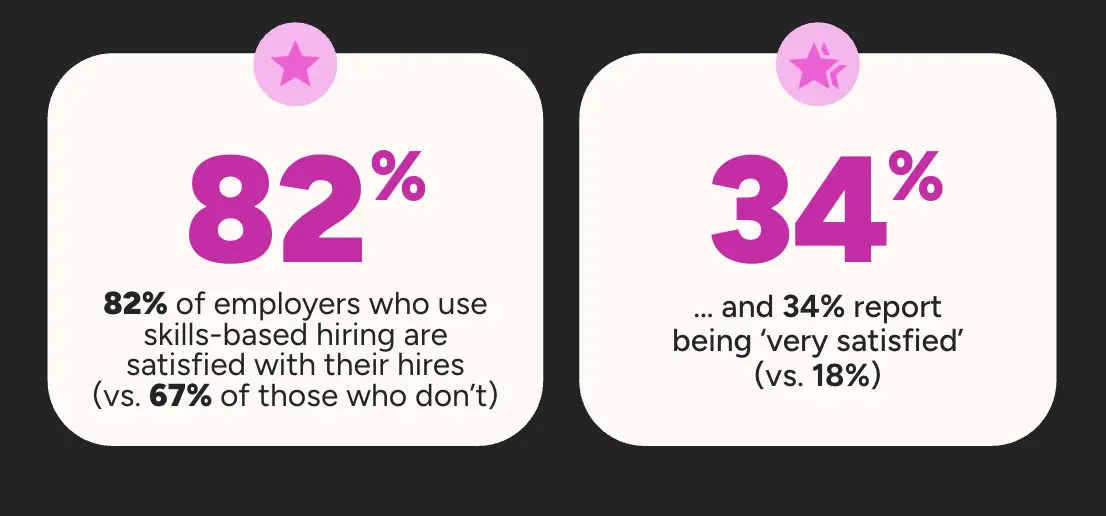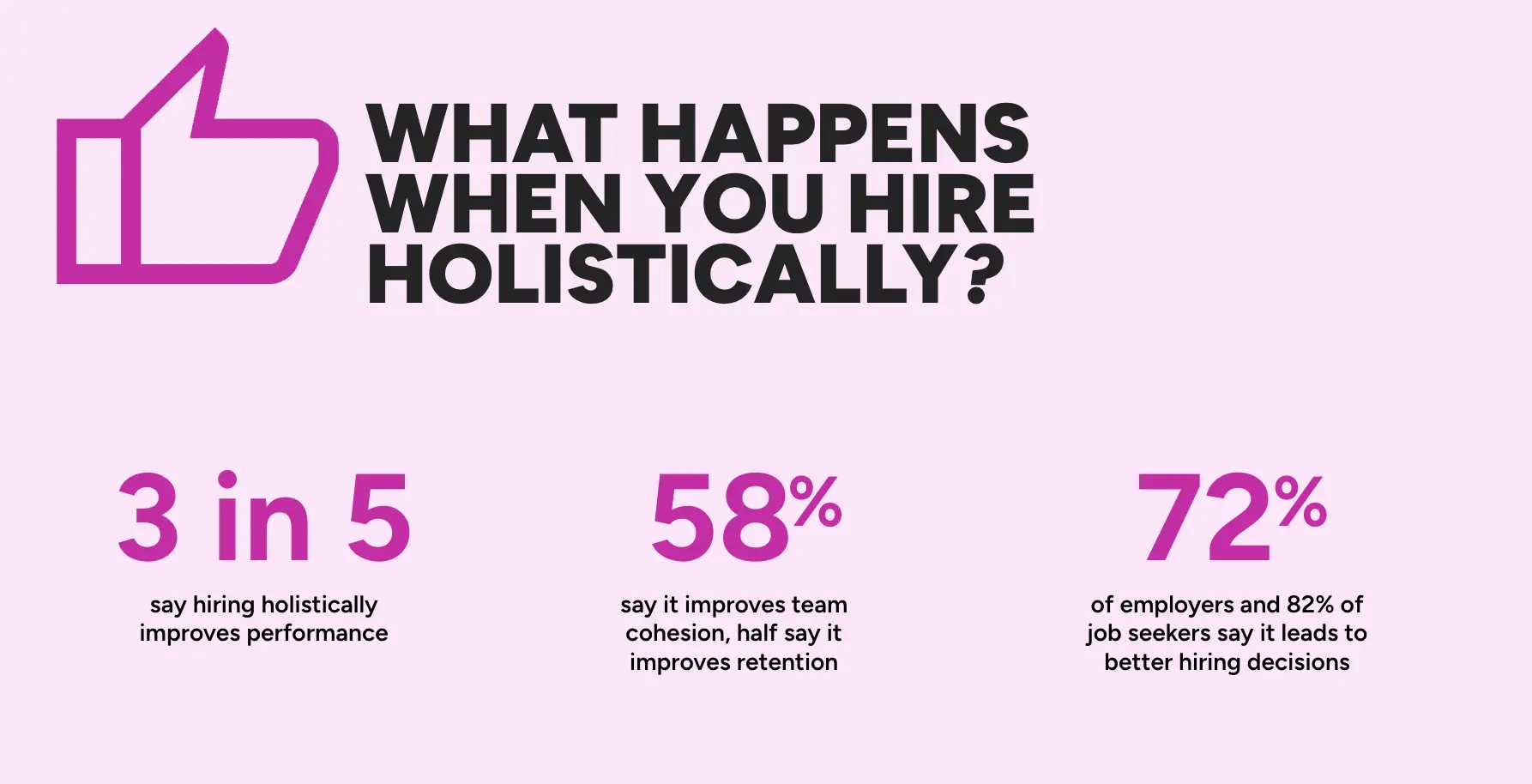Our latest webinar was one for the books. I was joined by Luke Davis, head of RPO talent solutions at Matchr, and our head of people Olive Turon for a discussion about what’s wrong with your hiring process and why holistic, skills-based hiring is the key to finding top talent. It features plenty of hot takes and exclusive data from our latest report.
You can watch the recording on-demand here, but I thought I’d jot down the big takeaways for anyone who’s more of a reader.
1. Despite new tools, hiring’s getting harder
TestGorilla’s data shows 63% of employers are finding it harder to find top talent this year. In addition, 7 in 10 job seekers say it’s getting harder to find a job. Both sides of the recruitment coin are struggling.
Our discussion led us to a consensus: We still have such a strong relationship with resumes, and it’s causing big problems. We have new, cutting edge hiring tools, but we’ve not yet successfully brought old and new together. To quote Olive:
“Yes, there a lot of great tools, there’s lots of technology. But some are better than others, and even the best tools will just make hiring more complicated if you don’t know how to use them well, or when to stop using the things that are now outdated.”
The big picture doesn’t make things any easier. The job market is tough, with an employment-to- vacancy ratio of 1:1 in the UK, and 42% of jobseekers report experiencing hiring bias this year.
2. Lazy criteria are causing a match-making problem
We’ve got enough data to really put our finger on the problem. The jobs are there, the talent is there – we’re just not doing a good enough job of matching them together.
The match-making problem is multi-faceted indeed, but Luke highlighted something important:
“I’ve started using the phrase ‘lazy criteria’. I think we’ve developed lazy criteria, and it’s been handed down over the years. We look at resumes, we look for job titles, we look for prestige, we get excited about certain company names. It’s a combination of a lot of things, and we need to do better.”
It's easy to revert to years of experience in a certain role as your main recruitment criteria. But there's more to a great hire than that. Over-reliance on experience could mean you miss out on your match.
The best insights on HR and recruitment, delivered to your inbox.
Biweekly updates. No spam. Unsubscribe any time.
3. Employers who use skills-based hiring are more satisfied
Data from our report shows that 82% of employers who use skills-based hiring are satisfied with their hires. This goes down to 67% for the cohort of employers who don’t use skills-based hiring. This tells us skills-based employers are faring better amidst the match-making problem.
The questions I've had about skills-based hiring have changed all the time. People used to ask me "what is it?" – and now they're asking "how do I do it?"
Check out our skills-based hiring hub for more. This is the perfect place to start if you're a skills-based hiring newbie!
4. The key to real hiring success? Make it holistic
We also got down to discussing the best way to do skills-based hiring. The key is to be holistic – meaning you go beyond experience to consider soft and technical skills, cognitive ability, behavioral competencies, personality, values, cultural alignment. The whole lot.
Employers cite great benefits when they hire this way:
Why not watch the webinar?
There's plenty more data and discussion in the webinar. Watch it here and let us know what you think!
You've scrolled this far
Why not try TestGorilla for free, and see what happens when you put skills first.





















